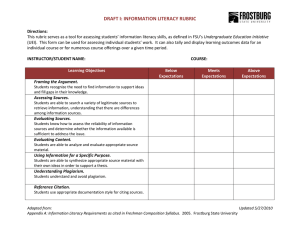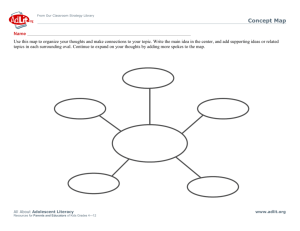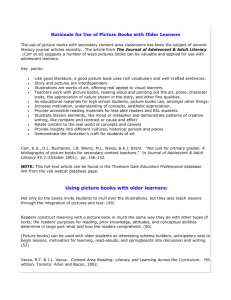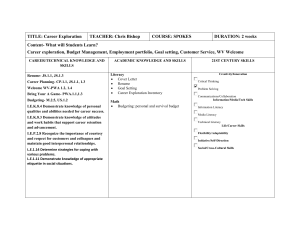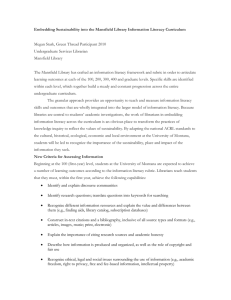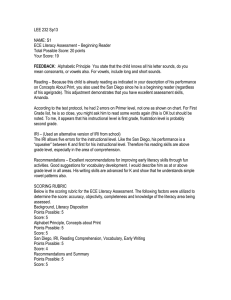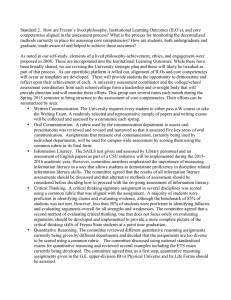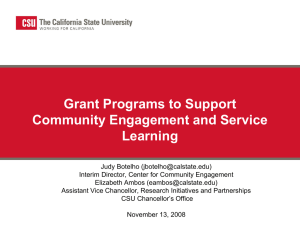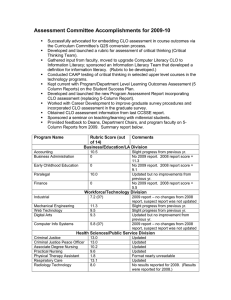EDUCATION 285 & 287-- the Secondary Block-
advertisement
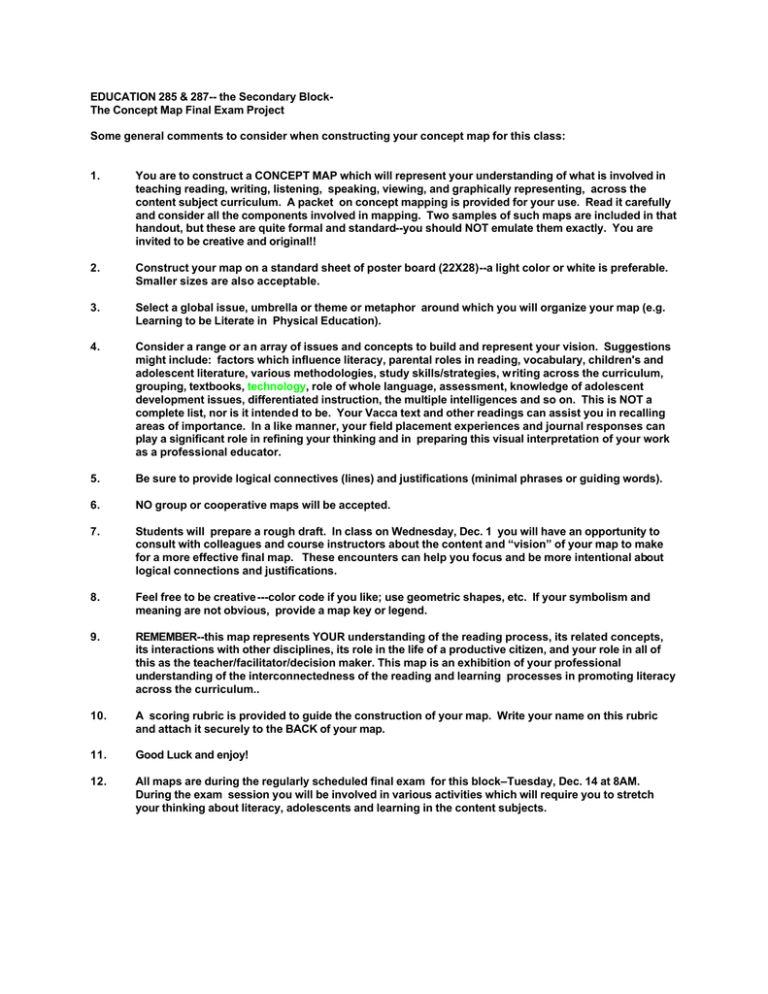
EDUCATION 285 & 287-- the Secondary BlockThe Concept Map Final Exam Project Some general comments to consider when constructing your concept map for this class: 1. You are to construct a CONCEPT MAP which will represent your understanding of what is involved in teaching reading, writing, listening, speaking, viewing, and graphically representing, across the content subject curriculum. A packet on concept mapping is provided for your use. Read it carefully and consider all the components involved in mapping. Two samples of such maps are included in that handout, but these are quite formal and standard--you should NOT emulate them exactly. You are invited to be creative and original!! 2. Construct your map on a standard sheet of poster board (22X28)--a light color or white is preferable. Smaller sizes are also acceptable. 3. Select a global issue, umbrella or theme or metaphor around which you will organize your map (e.g. Learning to be Literate in Physical Education). 4. Consider a range or an array of issues and concepts to build and represent your vision. Suggestions might include: factors which influence literacy, parental roles in reading, vocabulary, children's and adolescent literature, various methodologies, study skills/strategies, writing across the curriculum, grouping, textbooks, technology, role of whole language, assessment, knowledge of adolescent development issues, differentiated instruction, the multiple intelligences and so on. This is NOT a complete list, nor is it intended to be. Your Vacca text and other readings can assist you in recalling areas of importance. In a like manner, your field placement experiences and journal responses can play a significant role in refining your thinking and in preparing this visual interpretation of your work as a professional educator. 5. Be sure to provide logical connectives (lines) and justifications (minimal phrases or guiding words). 6. NO group or cooperative maps will be accepted. 7. Students will prepare a rough draft. In class on Wednesday, Dec. 1 you will have an opportunity to consult with colleagues and course instructors about the content and “vision” of your map to make for a more effective final map. These encounters can help you focus and be more intentional about logical connections and justifications. 8. Feel free to be creative---color code if you like; use geometric shapes, etc. If your symbolism and meaning are not obvious, provide a map key or legend. 9. REMEMBER--this map represents YOUR understanding of the reading process, its related concepts, its interactions with other disciplines, its role in the life of a productive citizen, and your role in all of this as the teacher/facilitator/decision maker. This map is an exhibition of your professional understanding of the interconnectedness of the reading and learning processes in promoting literacy across the curriculum.. 10. A scoring rubric is provided to guide the construction of your map. Write your name on this rubric and attach it securely to the BACK of your map. 11. Good Luck and enjoy! 12. All maps are during the regularly scheduled final exam for this block–Tuesday, Dec. 14 at 8AM. During the exam session you will be involved in various activities which will require you to stretch your thinking about literacy, adolescents and learning in the content subjects.
